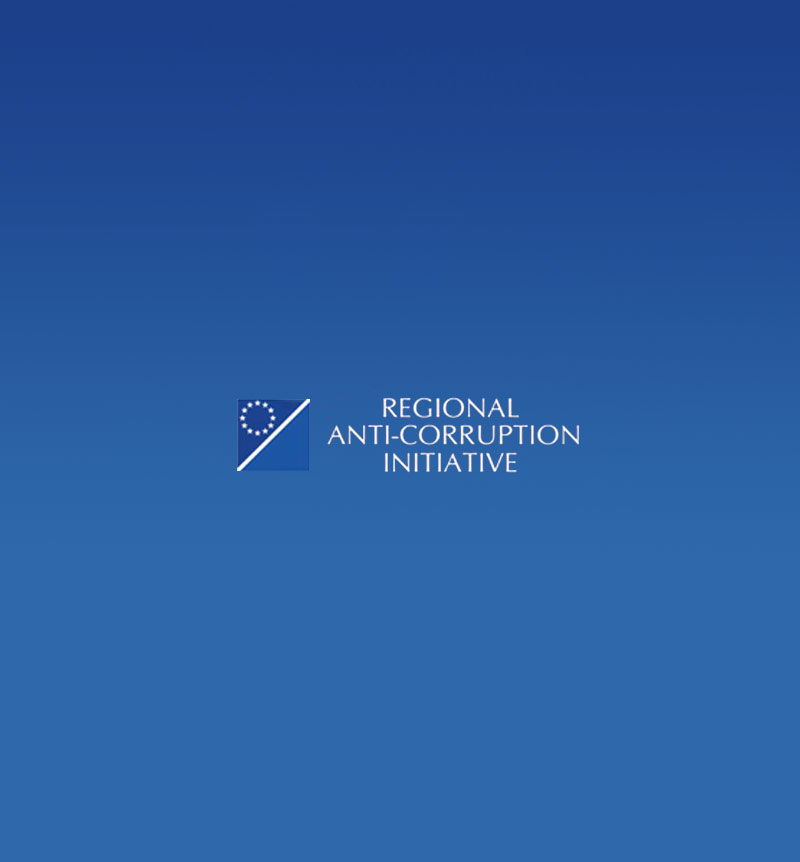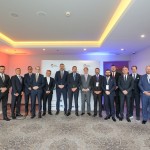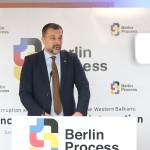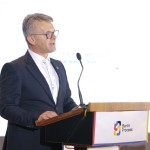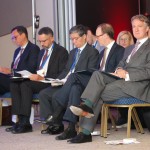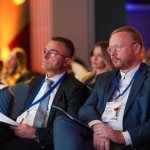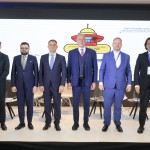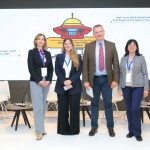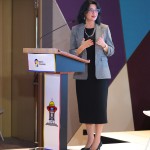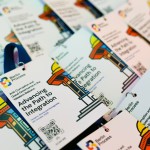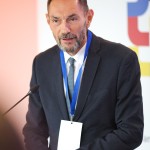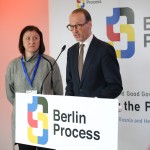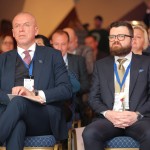Sarajevo, 6 October 2025 – Sarajevo hosted a landmark regional event today within the framework of the Berlin Process, dedicated to anti-corruption and the advancement of integrity systems across the Western Balkans. The gathering brought together ministers, international representatives, experts, and civil society, creating a dynamic platform to exchange experiences, share best practices, and explore innovative tools in the fight against corruption.
The event underscored that corruption is not merely an economic challenge — it directly affects stability, security, and the long-term prospects of societies. Participants highlighted the importance of regional and international cooperation, emphasizing that a unified approach is essential for meaningful progress.
Political Commitment at the Forefront
Speakers across the event reinforced the critical role of political will in combating corruption. Mr. Albert Hani, Director of the Regional Anti-Corruption Initiative (RAI), stressed:
“This activity clearly showed that citizens expect a swift and decisive response from all stakeholders fighting corruption. Our shared goal is to eradicate corruption, but we cannot achieve it alone. Only through joint, dedicated, and coordinated action can we achieve real change.”
Echoing this, Mr. Dražen Jelenić, Chairperson of the RAI Steering Group, highlighted the political dimension of anti-corruption:
“Fighting corruption is not merely a technical issue — it is primarily a political one. It is about the political will for citizens to live in states built on integrity, transparency, and the rule of law. The Berlin Process has recognized the importance of anti-corruption and placed it firmly on its agenda.”
Milestones in Regional Anti-Corruption Cooperation
The event marked a historic moment with the recognition of the International Agreement on Data Exchange for the Verification of Asset Declarations as a milestone for transparency in the region. Participants also discussed the preparation of a Regional Agreement on Asset Sharing, alongside the broader importance of asset recovery as a tool to reinforce integrity and accountability.
From an international perspective, cross-border collaboration was highlighted as a key component of the fight against corruption. His Majesty’s Ambassador to Bosnia and Herzegovina, Mr. Julian Reilly, stated:
“Corruption burdens all Western Balkan countries because it undermines public trust and facilitates organized crime. Governments must work together and act across borders to achieve shared goals.”
The Deputy Head of the Delegation of the European Union to Bosnia and Herzegovina, Mr. Adebayo Babajide, emphasized the crucial role of legislation in advancing European integration, noting:
“Bosnia and Herzegovina is currently positioned between the early and moderate stages of preparedness in the fight against corruption. The adoption of the state-level law on the prevention of conflicts of interest represents an important step, but its consistent implementation is essential. The European Union has supported and will continue to support efforts to combat corruption in Bosnia and Herzegovina, as well as in the region, and the implementation of reforms that pave the way toward European integration.”
The Minister of Foreign Affairs, Mr. Elmedin Konaković, and Deputy Minister of Justice, Mr. Elvir Mahmuzić, reinforced the need for strong institutions and continued reforms.
Civil Society as a Key Partner
Civil society organizations were recognized for their essential role in holding institutions accountable, amplifying citizens’ voices, and promoting inclusive governance. Matthias Herr, Regional Director of HELVETAS for Eastern Europe, noted:
“Civil society does not replace government — it works alongside it. Such partnerships are essential for building fairer, more inclusive societies and for bringing the Western Balkans closer to the European Union.”
The event was structured in two parts, with the first part featuring a High-Level Political Dialogue composed of two panels. Panel I, titled “Strengthening Integrity Systems through Enhancing Regional Cooperation: From Political Commitments to Effective Implementation”, brought together Momo Koprivica, Deputy Prime Minister for the Political System, Judiciary and Anti-Corruption, Nenad Vujic, Minister of Justice, Elvir Mahmuzić, Deputy Minister of Justice and Albert Hani, the Director, Regional Anti-Corruption Initiative. The panel was moderated by Mr. Georg Stawa, Counsellor for Southeast Europe at the Austrian Federal Ministry of Justice. Panel II, titled “Anti-Corruption as Foundation of Regional Stability and Economic Growth”, included Tedi Dobi, Deputy Minister of Justice, Stoyan Lazarov, Deputy Minister of Justice, Vigan Qorrolli, Deputy Minister of Justice, Mladen Bručić Matić, Director General of the Directorate for European Affairs, International and Judicial Cooperation and Anti-Corruption, and Sergej Sekulović, State Secretary of the Ministry of Justice. The panel was moderated by Mr. James Hamilton Harding, Deputy Head of Mission at the British Embassy in Sarajevo.
The second part of the event was structured into two sessions: the first session, “Strengthening Integrity Systems through Enhancing Regional Cooperation: From Political Commitments to Effective Implementation”, featured Nikola Naumovski, Senior Anti-Corruption Advisor at the Regional Anti-Corruption Initiative, Aleksander Krebl, Team Leader of EUPA4BIH – European Union Police Assistance for Bosnia and Herzegovina, Lejla Kurtanović, Prosecutor and Member of The Asset Recovery Network at the Prosecutor’s Office Sarajevo, and Sabina Đapo, Programme Manager at the AIRE Centre – Western Balkans, moderated by Mr. Hans van den Berg, Project Director of EUPA4BIH; the second session, “Collective Action and Anti-Corruption as Foundation of Regional Stability and Economic Growth”, included Scarlet Wannenwetsch from the Basel Institute on Governance, Daniela Mineva, Coordinator of the Center for Study of Democracy/SELDI Network, and Eldan Mujanović, Professor at the Criminal Policy Research Centre, Faculty of Criminal Justice, Criminology and Security Studies, University of Sarajevo, and GI-TOC Expert, moderated by Dr. Marika Djolai from HELVETAS Swiss Intercooperation.
Key Conclusions and Recommendations
The Sarajevo event concluded with a strong reaffirmation of political determination to combat corruption, acknowledging that corruption is a critical factor for regional stability, security, and perspective. Key outcomes include:
Conclusions:
- Strong support for translating political commitment into concrete practice,
- Recognition of the International Treaty as a milestone,
- Emphasis on asset recovery and preparation of a Regional Asset Sharing Agreement,
- Corruption impacts not just economies but stability, security, and regional perspectives,
- Need for closer cooperation among governments, civil society, and international partners.
- Recommendations:
- Broader accession and full implementation of the International Treaty,
- Progress on the draft Regional Asset Sharing Agreement,
- Systematic use of monitoring mechanisms and integrity indicators,
- Stronger multi-stakeholder cooperation and collective action,
- Directly linking anti-corruption efforts to reducing corruption-driven migration.
Driving Regional Change
The Sarajevo gathering highlighted that the fight against corruption is a shared responsibility requiring a unified, multi-level approach. By combining political commitment, regional cooperation, civil society engagement, and international support, the Western Balkans can make decisive strides toward integrity, transparency, and sustainable development.
This important side event of the Berlin Process was jointly organized by the Government of the United Kingdom, RAI, the Ministry of Justice of Bosnia and Herzegovina, and the Ministry of Foreign Affairs of Bosnia and Herzegovina, together with partners HELVETAS Swiss Intercooperation, EUPA4BIH, AIRE Centre – Western Balkans Programme, and the Austrian Development Agency (ADA).

